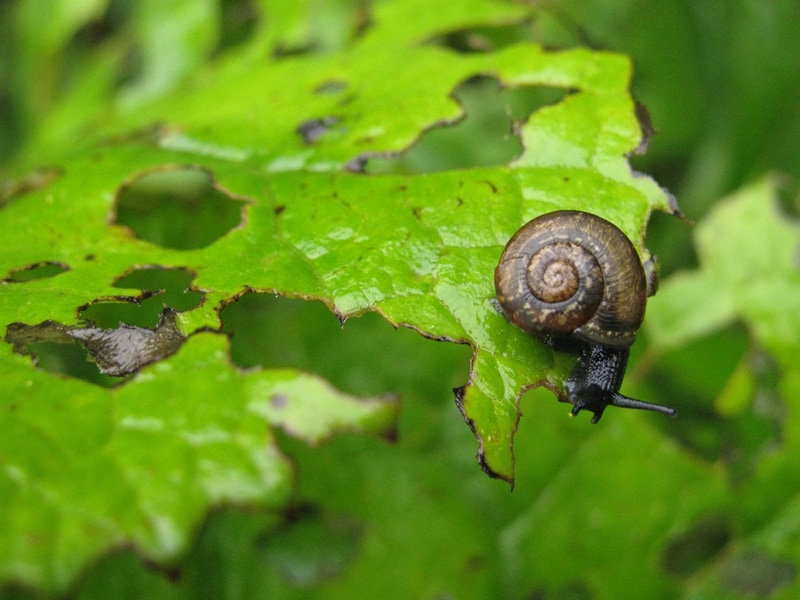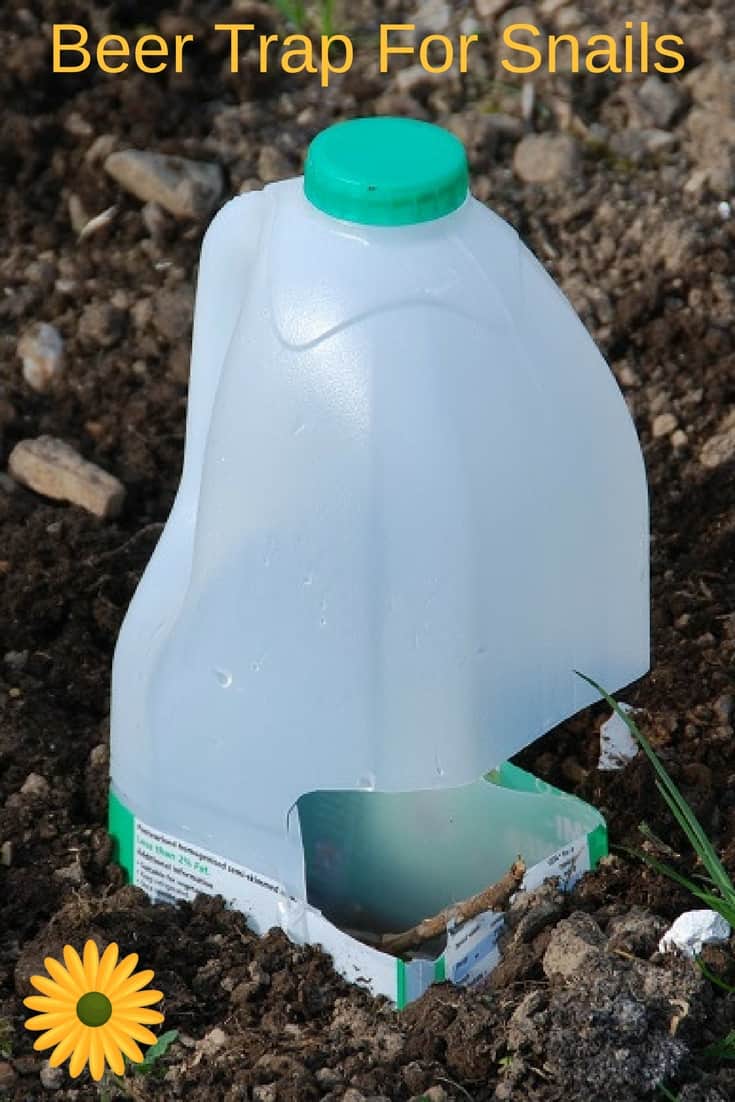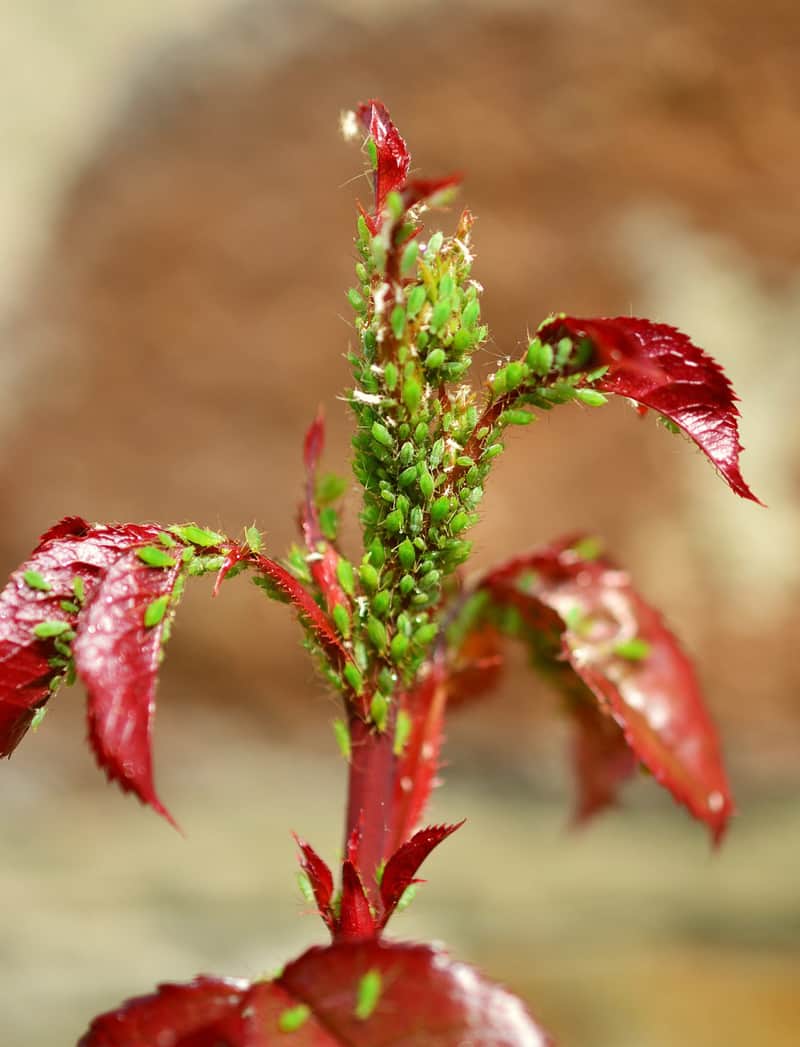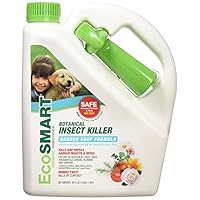No matter how much time you spend in your garden, some vegetables will be invaded by garden pests at one point or another. When you grow vegetables, you’ll need to spend a lot of time checking your garden for the next attack of hungry critters. Let’s see what steps you can take to control vegetable garden pests.

5 Ways To Prevent Garden Pests
- build up your garden soil – add compost, fertilize, and mulch your garden beds to create a good environment for healthy vegetables
- rotate crops – this will help avoid re-infestation, as well as depletion of specific types of nutrients, as different crops require different nutrients
- pair vegetables with flowers and herbs – this can help keep pests away, or in some cases, be “sacrificed” for the sake of your vegetable (pests will feed on the flower rather than your vegetable)
- remove infected plants – if you’ve tried your best to remove pests from your garden and still can’t control them, it’s best to remove (and burn) the infected plants
- clean your garden tools – this will prevent you from spreading pests to other parts of the garden
Vegetable Garden Pest Control
Even if you’ve taken measures to prevent garden pests, you’ll often end up with at least some unwanted garden creatures. After all, you are growing food, and if there is something to eat, you can’t expect these pests to just pass it by. Your cabbages, lettuces, and tomatoes are fair game.
So many insect pests will take an opportune moment to snack upon your hard work! And there seem to be many ideas to destroy them: some work well, others not so much. This guide to vegetable garden pest control will help with some ideas.
How to control garden slugs
Slugs are one of the most damaging pests in the garden, and for many people, a scattering of slug pellets is the answer. Of course, this type of poison should be a last resort.
The most common slug pellets are made from the chemical Metaldehyde, which was discovered as a slug killer. Original Metaldehyde was used in the production of meta-tablets, a camping solid fuel, and farmers in France noticed that dead slugs were often found where these tablets had been thrown; it has since been developed for just this purpose.
Unfortunately, the most common form of pet poisoning seen by vets is through ingestion of slug pellets.
So, since there are so many other effective ways of dealing with slugs, please make the pellet your last resort.
Natural slug repellents
Oats are a good bait: slugs will fill up on them and become bloated and dehydrated, making them easy pickings for birds.
My favorite way to eliminate slugs is the beer trap: just sink a cup into the soil, half-fill it with beer, and empty the trap when full. The only disadvantage with beer traps is that they will fill with rain water and need resetting. To counter this, cut a hole in the side of a milk bottle and bury it deep enough for the bottom of the hole to be level with the soil. The top of the bottle acts like a roof.

You could also try placing crushed egg shells, or coffee grinds at the base of your plant; the egg shells are sharp, and the slugs do not like the caffeine in the coffee.
As an environmentally friendly biological slug killer, try nematodes. These parasitic worms attack slugs and infect them with a bacteria. You simply make a solution containing thousands of nematodes and water them into the garden.
How to get rid of aphids in the garden

Aphids are small bugs that suck the sap from plants. They reproduce rapidly and can cause extensive damage to crops.
Hoverflies, ladybirds, and spiders will all make light work of clearing any aphid problems you might have. But there are other methods of removing aphids, black-fly, and greenflies: a jet of water would blast them off, and an organic insecticidal soap would kill most sap-sucking and leaf-eating vegetable garden pests, including caterpillars and leaf beetles.
You can buy pest control soap solutions or make your own by mixing a natural soap, such as Castile soap, with water. Use approximately 5 tablespoons of soap per gallon of water. Adding garlic or chili will also stop chewing insects from eating your plants.
Other vegetable garden pest control solutions
For a more exotic vegetable garden pest control solution, create habitats for pest predators. Build a water feature in the garden, and frogs and toads could catch slugs. Add a resident hedgehog who will clear your garden of many pests. Don’t use slug bait if you’re lucky enough to live where hedgehogs do.
Broad beans are a favorite of black flies, but as they tend to prefer the softer growing tips, the easiest way to get rid of them would be to snap off the tops of the plants and dispose of them.
A teaspoon of cider vinegar will get rid of powdery mildew.
When choosing a vegetable garden pest control, pesticide sprays must be a last resort. If you start to wipe out the predators of these pests, you will still be vulnerable to more attacks that can easily get out of control.
You would be better off selecting companion plants to support your garden pest control rather than wiping out the very insects that could be helping you.
You can also protect the plants with a floating row cover to prevent damage from most pests or cover the plants with bird cages if rodents are an issue.
If you would like to know which pest is attacking your vegetable plants, take a look at our vegetable pest list. Then, you can get more ideas for battling the critters in your garden, big or small.
Natural Vegetable Garden Pest Control Products
If you’ve tried your best to prevent vegetable pests and still need help keeping your plants healthy and happy, here are a few organic and more natural pest control products you can try.
EcoSMART Organic Botanical Garden Insect Killer, Non-Toxic Garden Soap Formula, 64 oz Bottle Garden Safe 80422 Houseplant and Garden Insect Killer 24-Ounce Spray, 2 Pack
Garden Safe 80422 Houseplant and Garden Insect Killer 24-Ounce Spray, 2 Pack Natural Guard Spinosad Soap
Natural Guard Spinosad Soap





How To Grow Legumes For Food And To Increase Soil Nitrogen
Thursday 3rd of August 2023
[…] Deal with this by spraying with a homemade soap spray with a touch of chili (add 5 tablespoons of liquid soap to a gallon of water and a sprinkle of chili to stop insects from chewing on your plants). Learn more about vegetable garden pest control. […]
Backyard Vegetable Garden Ideas
Monday 8th of February 2021
[…] Vegetable Garden Pest Control Tricks Every Gardener Needs to Know […]
Guide To Vegetable Garden Pests
Thursday 2nd of August 2018
[…] Here is a guide to smaller garden pests and controlling them using powders and sprays. […]
Getting The Most From Your Garden | Backyard Garden Lover
Wednesday 6th of September 2017
[…] are many natural and fast ways to get rid of pests in your garden. You can manually pick them off or spray them off with water. Whatever you do, try to stay away […]
Your Worst Garden Enemies and How to Get Rid of Them | Backyard Garden Lover
Thursday 20th of July 2017
[…] You might find that pests come at certain times of the year, or that you have several different garden enemies you need to get rid of it, all at once. Whatever it is you’re going through, we understand the frustration and we’re here to help you control these pests. […]